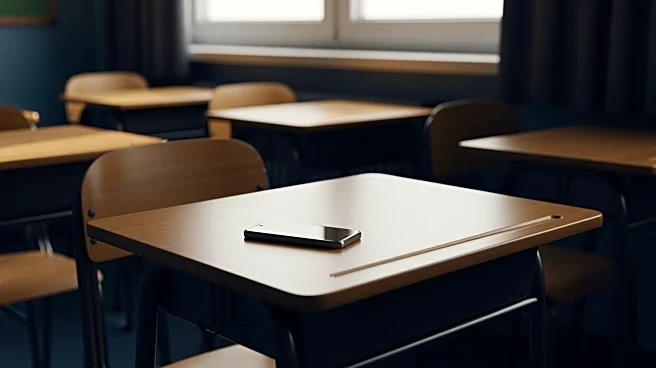What's Happening?
A study conducted by researchers at Radboud University in the Netherlands has found that banning smartphones in schools may lead to increased emotional loneliness among students. The study surveyed students from
two secondary schools that implemented a smartphone ban throughout the school day, requiring students to leave their phones in lockers. The survey, conducted before and after the nationwide ban in the Netherlands, revealed a slight increase in emotional loneliness among students, particularly those whose closest friends were not present in the school. The study also noted that socially vulnerable students might struggle more with the ban, feeling disconnected from their peers.
Why It's Important?
The findings of this study highlight the potential negative impact of smartphone bans on student mental health, particularly emotional well-being. As schools across the U.S. consider similar policies, understanding the implications on student social dynamics is crucial. The increase in emotional loneliness could affect students' ability to form close friendships and maintain social connections, which are vital for adolescent development. Schools and policymakers must weigh the benefits of reduced screen time against the potential for increased social isolation, especially for socially vulnerable students.
What's Next?
Further research is needed to understand the long-term effects of smartphone bans in schools and to compare schools with varying policies. Researchers like Jonathan Cantor at RAND emphasize the need for detailed data on policy types and implementation timelines to evaluate their impact rigorously. As schools in the U.S. and other countries consider or implement phone bans, gathering comprehensive data will be essential to inform policy decisions and address potential negative outcomes.
Beyond the Headlines
The study raises ethical considerations regarding student autonomy and the role of technology in education. While reducing screen time is a common goal, the potential for increased loneliness suggests a need for balanced approaches that consider individual student needs. Schools might explore alternative strategies, such as allowing phone use during breaks or implementing programs to foster social connections without reliance on technology.










